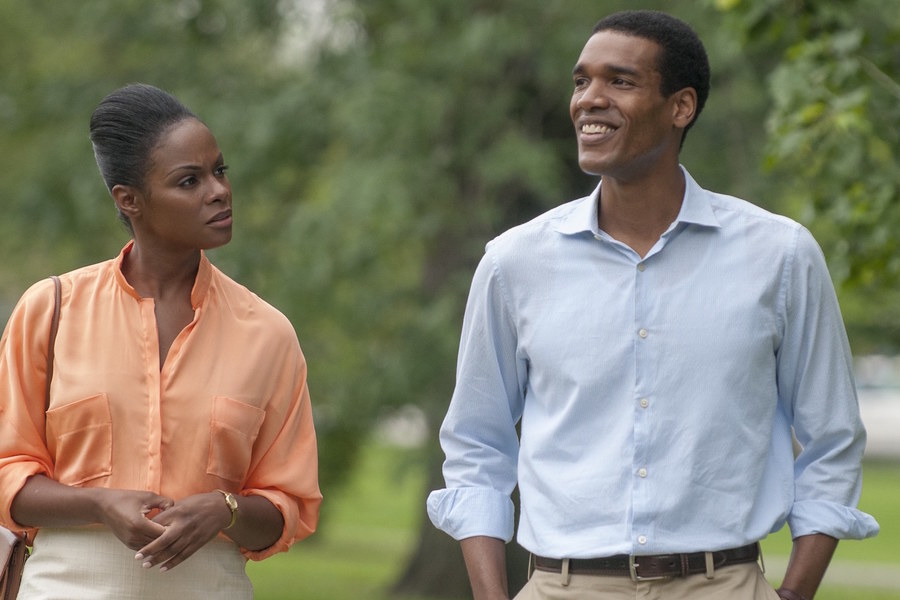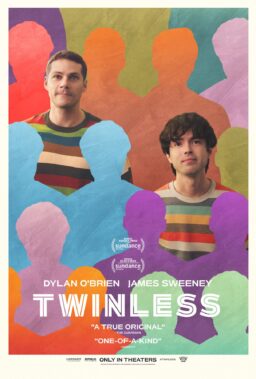How often do we see movies where characters are given the freedom to just walk and talk? More specifically, how often do these films give voices to minority characters at the center, allowing them to share their different experiences? “Southside with You” is a miracle of a film, and not just for making wonderful entertainment out of Barack and Michelle Obama’s first date.
Writer/director Richard Tanne’s project works in one part because it is bigger than even the future President of the United States and the First Lady. In his film, Barack Obama (Parker Sawyers) and Michelle Robinson (Tika Sumpter) are relatable young professionals on a determined path. The two first met at a corporate law firm, where Michelle worked as his adviser. He had pursued her repeatedly for a chance to go out, and she finally gave in.
But, because of their work conditions, Michelle insists that this cannot be a “date.” It would be inappropriate, and bad for her professional reputation, which she has to fight for more than him. “I just got to work a little harder to be taken seriously,” she says, in Tika Sumpter’s straight-from-the-heart performance. Immediately, “Southside for You” takes on its richer concepts, directly echoing how a modern call for diversity doesn’t mean only race: a man of the people like Barack may be able to earn a high position and some sense of respect, but a black woman like Michelle has to work double-time “to be seen for who I am.” The pressure of this weighs on them throughout the story, with Tanne making a sharp choice to make the charming, eloquent Barack originally unaware of a woman’s perspective.
Told through extended takes and expositional dialogue, Tanne has a very confident vision, moving the passages of his story along swiftly. Sawyers and Sumpter have incredible chemistry, with neither impersonating their true character as they touch upon family life, God, “Good Times” and more. “Southside with You” particularly receives a great jolt of energy and sweetness from Stephen James Taylor’s score, which welcomes the viewers to this little story with a light, toe-tapping tone, and guides us to a warm, romantic end.
Tanne has fun with the details of his true story. There are some big laughs when Barack talks about how some of his younger years went up in a “cloudy haze,” or how he drives a jalopy with a hole in it. As for pointing towards the future, Tanne gives “Southside with You” viewers a peek at President Barack Obama with a scene in which he speaks to a small group of Altgeld Gardens residents about a community center. Through a revelatory yet heartfelt speech (in which Sawyers nicely uses Obama’s inflections), we see this character go from member of the community to President of the United States and back again.
I should admit that starting around the second half of “Southside with You,” I mostly watched the film with tears in my eyes, right up to the touching end credits song by John Legend, “Start.” As unexpected as my volcanic emotional reaction was, it came in part from the unquestioned, completely calm beauty with which “Southside with You” presents these lives. With the hashtag of #OscarsSoWhite ringing loudly in this film festival that has the ability to advocate films not from the typical storytelling voice, there was something so wonderful about seeing two characters—who both talk about being outsiders—simply share their pride and their lives. In particular, a discussion about the two distancing themselves from J.J. in “Good Times” as a stereotype had a breathtaking pride to it, directly connecting to the contemporary problem that writers only see people different from them in the form of a stereotype. When Tanne then went to a closeup of Barack, looking up in a stoic but completely natural way, my gobsmacked connection to this film began. These characters are real human beings, the biographical context of this film notwithstanding.
A later scene had me similarly emotionally riled up, excitedly scribbling “‘Spike!” in giant letters in my notebook as if I had witnessed “Do the Right Thing” for the first time, again. Tanne doesn’t use this anticipated passage as just a reference to a genius film (and a helluva movie for a first date), but to show the two sides of Barack as a minority trying to communicate with a rich white man. His boss, also on a date at the movie by pure coincidence, asks Barack why “the delivery guy” throws the trash can at the window for Sal’s Pizza. Barack explains it logistically, that Mookie was saving Sal’s life, and that he knew Sal could collect insurance for damage to the store. When his boss leaves, Barack levels with Michelle, and us, about why Mookie threw the trash can: he was angry, no doubt about that. (Spike Lee has always said that only white people question why Mookie did what he did.)
And yet that sweltering, deadly heat within Lee’s artistic masterpiece is contrasted in Tanne’s film with a presentation of another unjustly stigmatized part of America, the south side of Chicago, which only registers here with a sense of pride and peace. Towards the end of their date, as Michelle and Barack navigate through the city and end in Hyde Park, the images of the city and its people are distinctly without hate. Instead, it is a united community—a setting for a story of personal expression and, ultimately, love.












